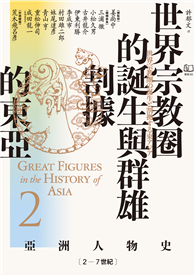Gain a deeper understanding of Islamic law with this textbook on the Maliki school of jurisprudence. Designed for students, scholars, and practitioners, this book provides a thorough exploration of Islamic legal principles with clarity and depth.
Chapter 1 lays the foundation by exploring the methodology of Islamic law, discussing concepts like Ijtihad (independent reasoning), Taqlid (imitation), and the issues of Ta’assub (bigotry). This chapter provides essential insights into the emergence and development of Islamic jurisprudence.
In Chapter 2, you will delve into the primary sources of Islamic law: the Quran, Sunnah, Ijma’ (consensus), and Qiyas (analogical reasoning), along with secondary sources. This chapter helps you understand how these sources interplay to form the rich tapestry of Islamic legal principles.
Chapter 3 focuses on Muslim family law, covering everything from marriage contracts to the termination of marriage. It discusses the rights and responsibilities of spouses, the significance of dowry (Mahr), and the balance between obedience and autonomy within marriage. This chapter provides a comprehensive overview of the family structure in Islam.
Chapter 4 examines the economic aspects of Islam, highlighting the importance of labor, trade, and sustenance from a religious perspective. It discusses the rights and responsibilities of workers and ethical considerations in economic transactions, offering a detailed analysis of the economic life in Islam.
Chapter 5 addresses the principles of Halal (lawful) and Haram (forbidden), providing guidance on permissible and forbidden foods, drinks, clothing, and leisure activities. This chapter also delves into ethical consumption and the principles governing worldly punishment and sanctions, offering a clear understanding of these crucial aspects.
With a comprehensive bibliography and answer keys included, this textbook is an indispensable resource for anyone seeking to navigate the complex terrain of Islamic law confidently. Whether you are a student of Islamic jurisprudence or a curious seeker of knowledge, this book offers a profound exploration of legal principles that resonate across cultures and contexts.
Table of Contents [Brief]
1. THE METHODOLOGY OF ISLAMIC LAW AND IJTIHAD
1.1 Definition and Emergence
1.2 Subject, Aim, and Benefits
1.3 The Essence of Ijtihad and its Necessity
1.4 Taqlid and Ta’assub (Imitation and Bigotry)
2. SOURCES OF ISLAMIC LAW
2.1 General Information
2.2 The Qur’an
2.3 Sunnah
2.4 Ijma’
2.5 Qiyas
2.6 Secondary Sources
3. MUSLIM FAMILY LAW
3.1 Fundamental Characteristics of the Family
3.2 Benefits of Marriage
3.3 Pre-Marriage Considerations
3.4 Impediments to Marriage
3.5 Nonbinding and Invalid Marriages
3.6 Marriage Contracts and Wedding Ceremony
3.7 Dowry (Mahr)
3.8 Maintenance of Family Members
3.9 Wife’s Obedience and its Limits
3.10 Termination of Marriage
3.11 Types of Divorce and Iddah
3.12 Upbringing of Children
4. ECONOMIC LIFE IN ISLAM
4.1 Importance of Labor and Trade
4.2 Religious Dimensions of Sustenance
4.3 Rights and Responsibilities of Workers
4.4 Prohibited Trading Practices
5. HALAL (LAWFUL) AND HARAM (FORBIDDEN)
5.1 Principles of Halal and Haram
5.2 Permissible and Forbidden Foods and Drinks
5.3 Rulings on Hunting Animals
5.4 Clothing and Adornments
5.5 Furniture, Decor, and Leisure Activities
5.6 Oath and Vow
5.7 Worldly Punishments and Sanctions
![Fiqh - According to The Maliki school of Islamic Law (Vol.2) [Islamic Jurisprudence]: Islamic Studies Textbook](https://addons.books.com.tw/G/prod/comingsoon_sq.jpg)










